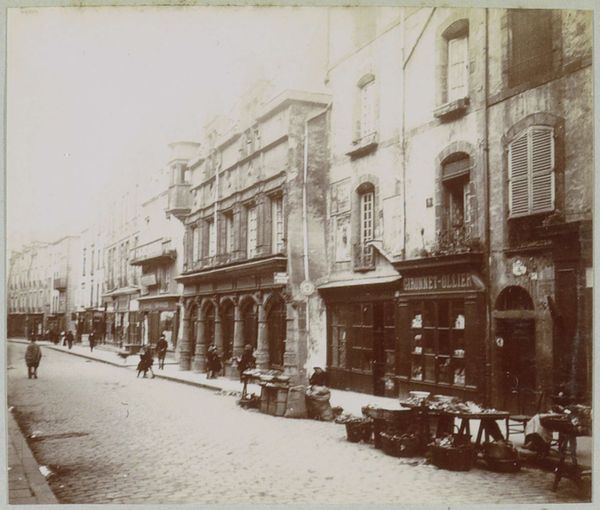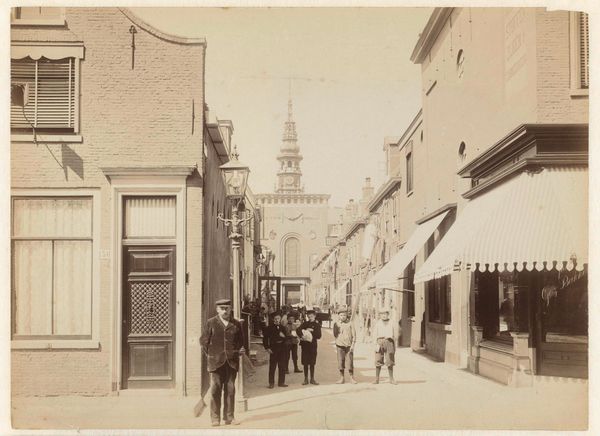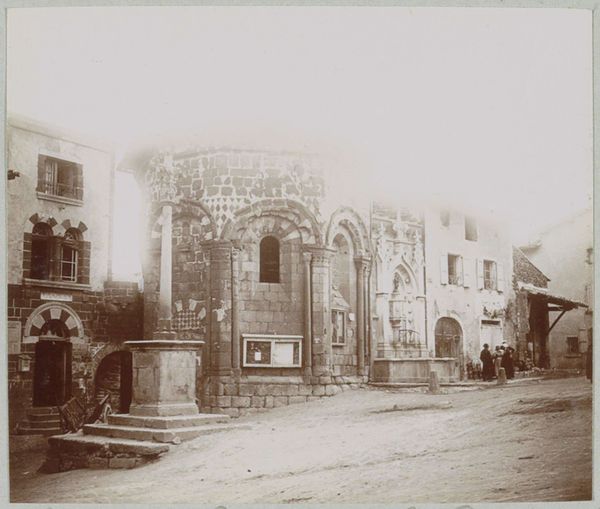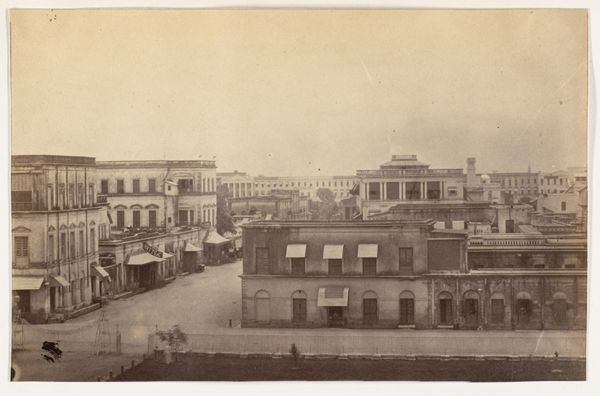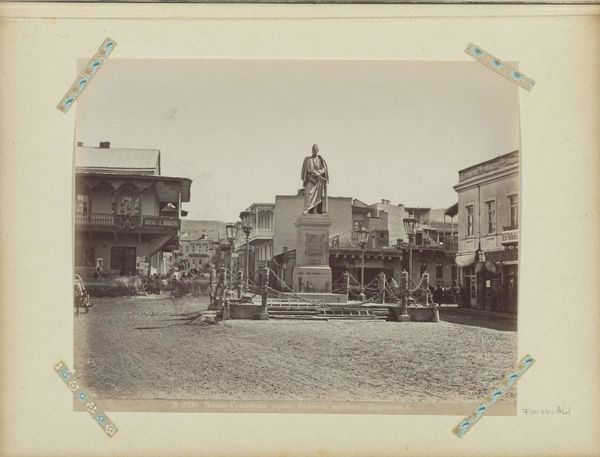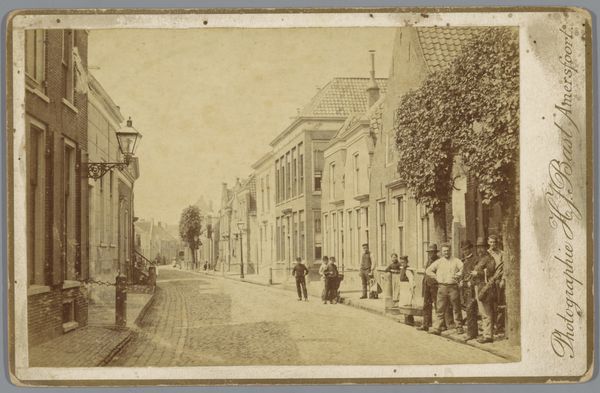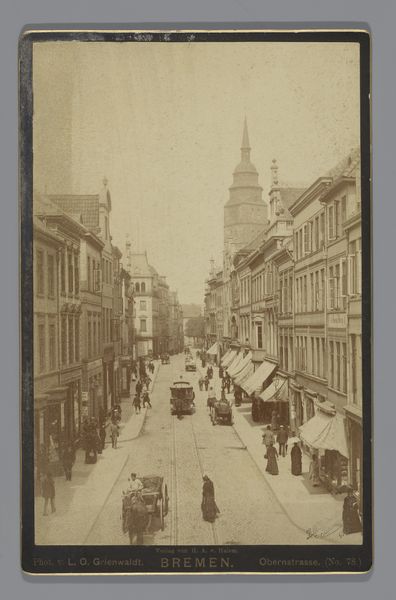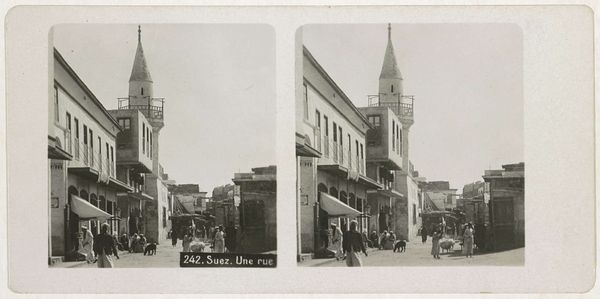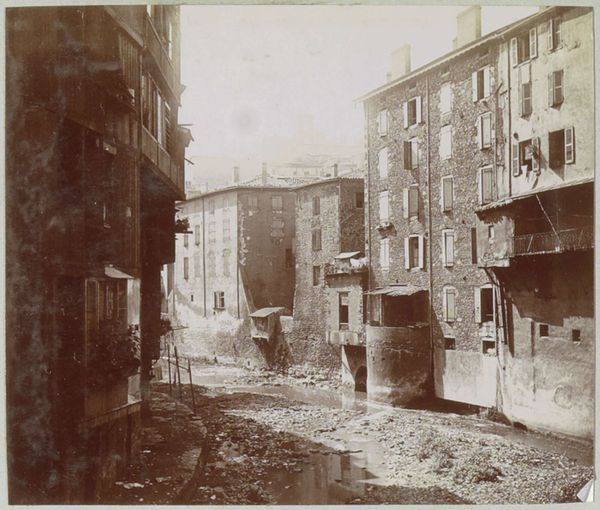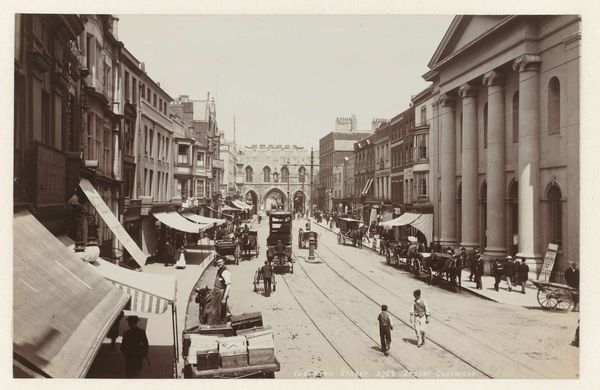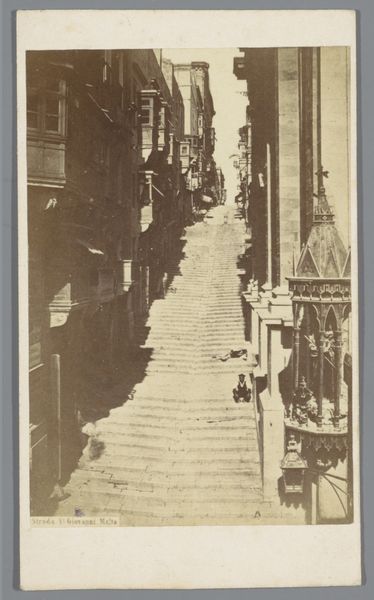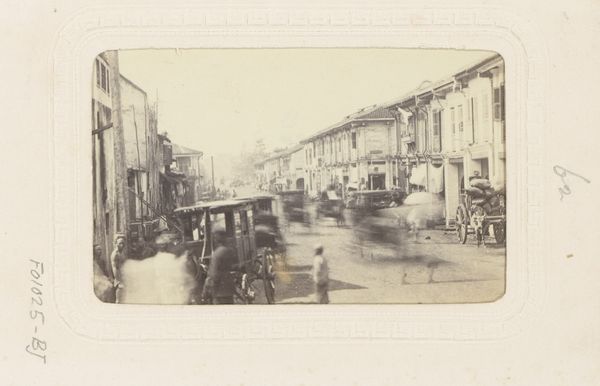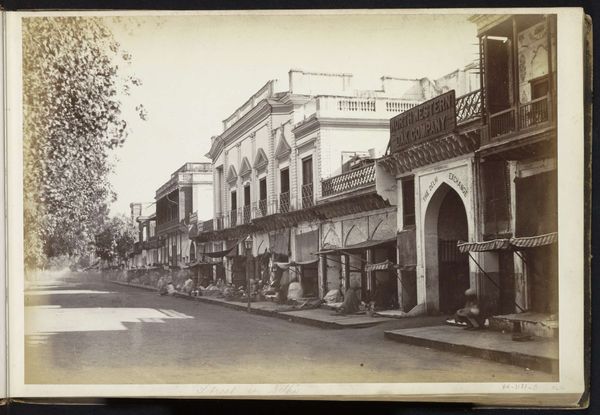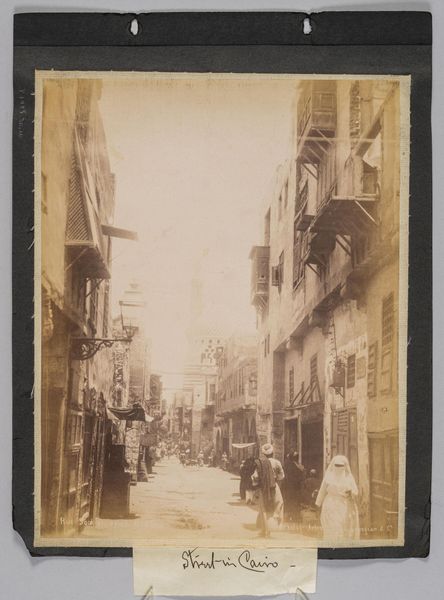
photography, albumen-print
#
photography
#
orientalism
#
cityscape
#
albumen-print
Dimensions: height 213 mm, width 278 mm
Copyright: Rijks Museum: Open Domain
Editor: So, this albumen print photograph from sometime between 1870 and 1891, titled "Gezicht op Rue Colmar in Suez," is attributed to Hippolyte Arnoux. I find myself drawn to the implied narrative; it’s a stage set for lives unfolding, framed within the colonial gaze, of course. What stories do you think it tells? Curator: Precisely, your observation is key: it’s a set stage. Given that the photo falls squarely within a period defined by intense colonial activity, what critical lens should we apply when assessing the visual narrative presented to us? Editor: Well, the "Orientalism" tag comes to mind, which makes me think of power dynamics and how the photographer, a European man, might have been framing the reality of life in Suez for a Western audience. Curator: Indeed. Arnoux was operating during a period of heightened European interest in, and control over, Egypt, particularly due to the Suez Canal. He may have focused on specific elements—architecture, street life—to align with popular Western perceptions and biases of the "Orient." But consider also the absence of certain narratives. Editor: What do you mean? Curator: What perspectives are missing or marginalized? Does this depiction of "everyday life" acknowledge the social and political tensions inherent to colonial occupation? Where are the labourers and builders who toiled to realize this "civilizing" project? By noticing what isn’t there, we challenge the colonial gaze, creating room to critique, subvert, and reclaim lost histories. Editor: That’s fascinating. It’s made me realize the image is not just a depiction, but also a document of power and exclusion. Curator: Exactly. By dissecting the power dynamics embedded in this image, we engage with photography not just as a historical record, but as a form of cultural and political intervention. It's an invitation to a larger conversation on history, identity, and representation.
Comments
No comments
Be the first to comment and join the conversation on the ultimate creative platform.
